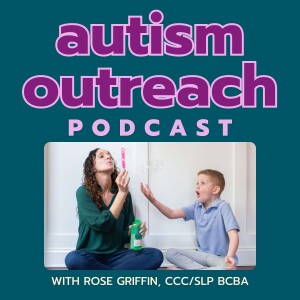
Autism Outreach - Easy Strategies For Parents and Professionals
Kids & Family:Parenting

How do you know if your therapy is working? Data collection is an important aspect of therapy to analyze goals and student improvement. During my 20 years of public school experience, I once had my data subpoenaed! It might be rare, but it CAN happen, so you want to be prepared.
Depending on your student goals and program, the way you collect data may differ. For some students, it may be appropriate to cold probe and collect discontinuous data with other continuous trials may be necessary. I explain how I use Google Forms to create digital data tracking for whichever need you have, which you can even attach to your Google Calendar to appear when you’re working with each student.
When it comes to paper data, many teachers and therapists create a data binder. For me, I like to include a calendar template, IEP goals and objectives, and then the various data sheets and task lists.
Consistently tracking data is crucial for your students and for yourself when it comes to creating progress reports, discussing progress in meetings, and even in the event the court may subpoena your data, like they did for me. Be sure to check out all of the resources I discussed today so that you can make your data collection habits organized and efficient.
#autism #speectherapy
What’s Inside:
- Why is data collection important?
- What are the various modes of data collection?
- How to organize data.
- How to individualize data collection.
- What to do if your data is subpoenaed?
Mentioned In This Episode:
Speech Therapy Data Binder
Data Collection using Google Forms
Membership - ABA Speech
Unwind to a wholesome mix of parenting stories, quirky humour, and cosy crafting
Listen on: Apple Podcasts Spotify
More Episodes
 2022-07-05
2022-07-05
 2022-06-14
2022-06-14
 2022-06-07
2022-06-07
 2022-05-17
2022-05-17
 2022-03-22
2022-03-22
Create your
podcast in
minutes
- Full-featured podcast site
- Unlimited storage and bandwidth
- Comprehensive podcast stats
- Distribute to Apple Podcasts, Spotify, and more
- Make money with your podcast
It is Free
- Privacy Policy
- Cookie Policy
- Terms of Use
- Consent Preferences
- Copyright © 2015-2024 Podbean.com





